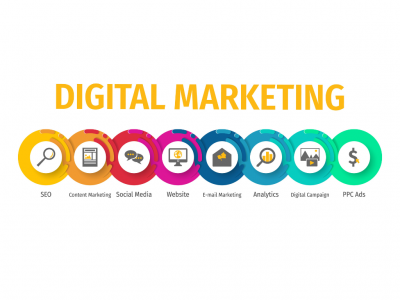What is digital disruption? It’s a business opportunity

Every single business has been digitally disrupted by the invention and development of the internet, and then disrupted again by the rise of Web 2.0, social media, and the sharing economy. You need to be working with the right digital agency to understand the new expectations about web design and user interfaces; your old shopping cart and sales funnel won’t work anymore.
Think of the famous example of the automobile putting the buggy whip maker out of business, or the story of Singin’ in the Rain, with “talkie” films pushing silent film actors out of roles.
A digital disruption, therefore, is any digital technology that changes what has come before. The first online store was a digital disruption. Amazon.com is a digital disruption. Even technologies not directly related to commerce, such as email and social media, are considered digital disruptions because they provide pathways through which business can be conducted — and therefore changed.
Think Your Business Hasn’t Been Digitally Disrupted? Think Again.
Every single business has been digitally disrupted by the invention and development of the internet, and then disrupted again by the rise of Web 2.0, social media, and the sharing economy. Think it isn’t true? Think again. Here are a few examples of industries that have been digitally disrupted:
- Banking: instead of walking into a bank and talking to a clerk, you can now transfer money by swiping your smartphone
- Travel: instead of spending weeks working with a travel agent to book the optimum holiday, you now use an aggregator site like expedia.com.au or lastminute.com.au to find the best deals in seconds.
- Media: instead of renting or purchasing videocassettes or DVDs, you now stream films online whenever you want them. Instead of purchasing stacks of books, you download stacks of books to your e-reader and store them in the cloud. Instead of developing camera film and printing photographs, you take pictures with your smartphone and instantly upload them to Instagram.
Every business has been fundamentally altered by the internet. Some businesses, like Cadbury, launched a website, rebranded their product for the new digital economy, created a highly popular Twitter account, and successfully transitioned to the online world. Others, like Blockbuster in the UK, were not able to change their business strategy and got lost in the disruption — the few remaining Blockbuster stores in the UK closed in December 2013, never to rent another DVD.
How You Can Leverage Digital Disruption To Your Advantage
The first rule of leveraging digital disruption is to understand what is being disrupted. Last September, for example, business website Inc ran an article titled How Will The Sharing Economy Disrupt Your Business? Did you read it? Do you know what the “sharing economy” is, and how your business will plan a digital strategy to incorporate that economy?
The second rule of leveraging digital disruption is to stay current. It used to be that every business needed a website. Now, every business needs a website that integrates social media accounts like Linked In, Twitter and Facebook, and contains visible elements of social sharing and social proof.
You also need to be working with a digital agency to understand the new expectations around web design and user interfaces; your old shopping cart and sales funnel won’t work anymore, and you need to update your website every few years to take advantage of the latest web technologies and avoid getting left behind. You need to make sure customers can easily navigate your website and purchase your product from their laptops, smartphones, and tablets. As new technologies develop – think Google Glass – you’ll need to adapt to them as well.
When economic systems get disrupted, some businesses get shaken to the bottom while others navigate their way to the top. You know which side you want your business to be on, so pay attention to the current digital disruptions and learn how to use them to ensure your company’s success.
Related Articles
-
3 Reasons Why You Need a New Website
A professional looking, lead generating website is the first step for any Digital Strategy. There are many good reasons for needing a new website, but below are the TOP 3 reasons ...
More -
What’s Important in Web Design Trends In 2022
Now that we are already halfway through 2022, you still have ample time left to improve your web design in line with the latest web design trends. Here are the most ...
More -
Benefits Of Digital Marketing to Real Estate Developers
Digital marketing is imperative for real estate developers. Real estate development is among the biggest and wealthiest industries in Australia. There is always a consistent, strong demand for housing, rental ...
More -
What’s Included in a Website Redesign Project?
A new website often means new opportunities to boost brand image and increase your business’ conversion rate. A website redesign project means revitalising your existing website. It involves optimising the ...
More




